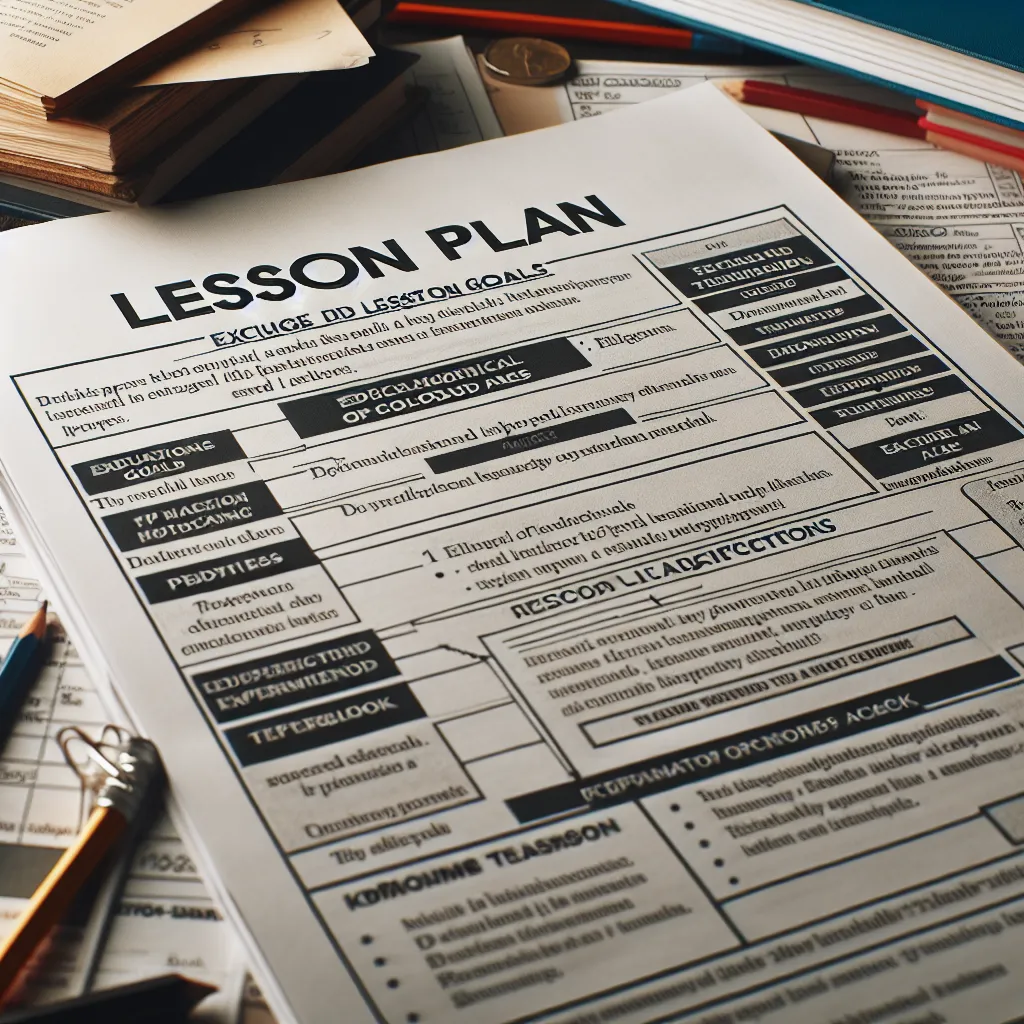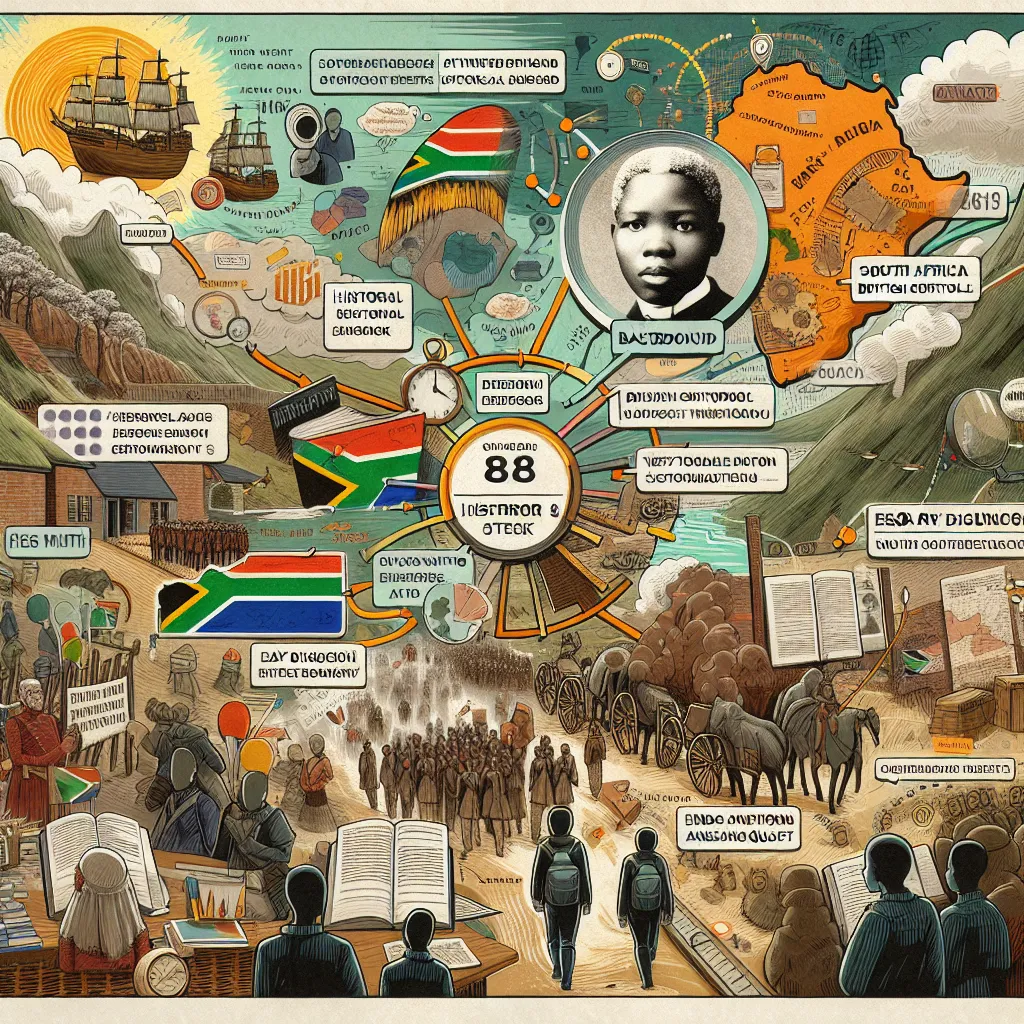Ask AI on The Internet
Question: Write a full grade 10 History South African lesson plan using the 2024 ATP for term 3 and the CAPS Focus grade 10 textbook. The lesson plan should be on Increase in settler communities, and Attitude to land ownership. Include the content/concept area, the caps page number, the specific aims, the lesson objectives (knowledge, skills, attitudes/values), approach/teaching strategy, resources, the lesson introduction, the lesson development, the lesson conclusion and classwork
--- ## Lesson Plan: Increase in Settler Communities and Attitudes to Land Ownership ### Grade: 10 ### Subject: History ### Term: 3 ### Duration: 1 hour --- #### CAPS Page Number: 39-40 #### CAPS Focus Grade 10 Textbook: Chapter 5, Pages 123-135 --- ### Content/Concept Area: Increase in settler communities, and their attitudes to land ownership in South Africa during the 19th century. --- ### Specific Aims: 1. Develop a comprehensive understanding of the increase in settler communities in South Africa. 2. Understand the different attitudes towards land ownership among settlers and indigenous communities. 3. Analyze the impact of these attitudes on the socio-economic structure of South African society. --- ### Lesson Objectives: #### Knowledge - Explain the reasons behind the increase in settler communities. - Understand the settlers' concept of land ownership. - Discuss the indigenous people's perspective on land ownership. #### Skills - Analyzing historical texts and documents. - Comparing different perspectives on land ownership. - Developing critical thinking skills related to historical events and their impacts. #### Attitudes/Values - Appreciate the diverse perspectives on land ownership. - Respect the historical experiences of different communities. - Promote values of justice and equity in discussions about land. --- ### Approach/Teaching Strategy: - Inquiry-based learning. - Discussion and debate. - Use of multimedia resources. - Group work and individual tasks. --- ### Resources: - CAPS Focus Grade 10 History textbook. - Extracts from historical documents and settlers' diaries. - Maps showing distribution of settler communities and indigenous lands. - Projector and computer for multimedia presentations. - Whiteboard and markers. --- ### Lesson Introduction: **Time:** 10 minutes - **Hook:** Show a short video clip depicting 19th-century settler life in South Africa. - **Discussion:** Ask students to share their initial thoughts on what life might have been like for both settlers and indigenous communities. - **Objective Sharing:** Explain the lesson objectives and why understanding these historical perspectives is crucial. --- ### Lesson Development: **Time:** 35 minutes 1. **Teacher Input** (10 minutes): - Brief lecture on the increase in settler communities due to British colonization, including economic opportunities, mineral discoveries, and British policies. - Display and explain maps showing the distribution of settler communities and indigenous territories. 2. **Group Activity** (15 minutes): - **Task:** Students will be divided into small groups and given extracts from historical documents, including settlers' diaries and indigenous oral histories. - **Activity:** Each group will analyze their document, identifying key points about attitudes towards land ownership from both settlers and indigenous perspectives. - **Discussion:** Groups will present their findings to the class. 3. **Class Discussion** (10 minutes): - Discuss the differences and similarities between settlers' and indigenous peoples' attitudes toward land. - Explore the impact of these different attitudes on South African society during the 19th century. --- ### Lesson Conclusion: **Time:** 10 minutes - **Summary:** Recap the main points discussed, emphasizing the contrasting attitudes towards land ownership and its socio-economic implications. - **Reflection:** Ask students to reflect on how these historical attitudes towards land ownership resonate with contemporary issues of land justice and reform in South Africa. - **Link to Future Learning:** Briefly discuss how this topic will lead into the next lesson's focus on land conflicts and resolutions. --- ### Classwork: - **Worksheet:** Provide students with a worksheet containing questions that require them to summarize the key points from the lesson and reflect on the impact of settler and indigenous attitudes to land ownership. - Identify two reasons for the increase in settler communities. - Compare the perspectives on land ownership between settlers and indigenous people. - Discuss one long-term impact of these attitudes on contemporary South African society. --- ### Extension/Homework: - **Research Assignment:** Students research a contemporary issue related to land ownership in South Africa and present their findings in the next class. --- ### Assessment: - Evaluate students based on their participation in group activity and class discussion. - Assess their worksheet answers for understanding and reflection of historical and contemporary issues related to land ownership. ---
Think your answer is better than the AI's? Post it below.
Other Most Relevant Posts:
Question Tags
If you want your question answered by an AI, click here.







Post your own comment: